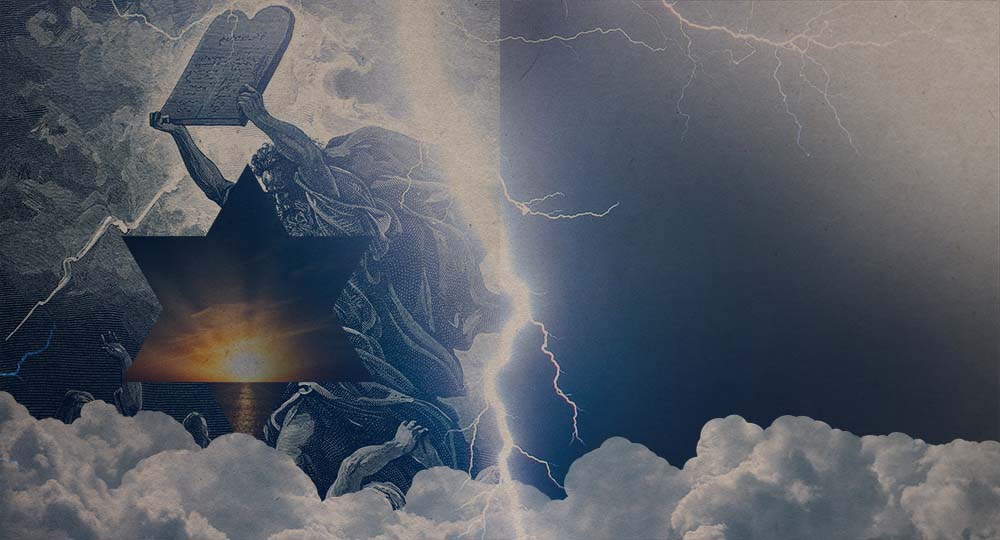Israel’s New Covenant
While God was punishing Israel, He was still carrying out His eternal purpose to give the nation “a future and a hope” (Jer. 29:11).
When the Japanese bombed Pearl Harbor on December 7, 1941, the people of the United States were devastated. Official inquiries were opened to determine what had happened. Special defenses were positioned on the West Coast in case the Japanese attacked the homeland; and the American people wanted affirmation that victory and better days lay ahead.
The same sentiment, but stronger, probably clenched the heart of every Jewish person after the Babylonians attacked Judah in 586 BC. The Babylonians struck the Jewish homeland, destroyed the Jewish capital of Jerusalem, and demolished the cherished Temple that was the very center of Jewish life and worship.
Worse still, they subdued the Jewish people and took them captive to Babylon. As the Jews made that long, arduous trek to a foreign land, they no doubt wondered what had happened to God’s promises to their fathers about possessing the land as a home for His Chosen People. Had God abandoned them?
Jeremiah the prophet warned the people their disobedience would bring God’s wrath on them. Through the prophet, God called the backsliding nation to return to Him (Jer. 3:12, 14, 22). But the Israelites continued to rebel and break the Mosaic Covenant God gave the nation at Mount Sinai (11:1–10). As a result, God said, “I Myself will fight against you with an outstretched hand and with a strong arm, even in anger and fury and great wrath” (21:5). Jerusalem was destroyed; and Judah’s king was delivered into the hands of Nebuchadnezzar, king of Babylon (v. 7; 2 Ki. 25:1–7).
Outwardly, it seemed as if God indeed had abandoned His Chosen People. But in reality, while He was punishing them, He was still carrying out His eternal purpose for the nation, to give it “a future and a hope” (Jer. 29:11).
Jewish Through and Through
Through Jeremiah, God gave His people an astounding prophecy to help them understand the permanence of His love and plan for them.
God promised that one day He would make a New Covenant with them (Jer. 31:31–34). Although this truth should be obvious, it must be said that this promise is for Israel and Judah (v. 31). The passage does not reveal any information about a future church; and the promise’s character is Jewish through and through.
The New Covenant differs markedly from the prior covenant (Old or Mosaic Covenant), which the Jewish people broke (v. 32). That covenant depended on their obedience to the Law God gave them at Mount Sinai (Ex. 20).
The New Covenant involves God placing His Law in their minds and writing it on their hearts, instead of on tablets of stone (Jer. 31:33). God also guarantees to Israel and Judah, “I will be their God, and they shall be My people” (v. 33). The implication is that no one will have to encourage others to know the Lord. All will know God. “I will forgive their iniquity,” He says, “and their sin I will remember no more” (v. 34).
This covenant means a day is coming when Israel will be restored spiritually. Other passages include a similar promise that involves putting the Spirit within the people (Ezek. 36:26–27).
The context of this wonderful prophecy also promises that the people of Israel will exist forever and always be a nation (Jer. 31:35–37). Ultimately, despite the Babylonian Captivity begun in Jeremiah’s day, there is coming a future time when the city of Jerusalem shall be built, never to be plucked up or thrown down again (vv. 38–40). Ezekiel confirmed that the New Covenant promise involves Israel being restored to its land (Ezek. 36:28—37:28). Thus, the New Covenant is God’s promise of ultimate spiritual restoration for Israel, which takes place when Messiah Jesus returns to set up His Kingdom on Earth.
What About the Church?
A major question that emerges concerning the New Covenant is this one: What, if any, application is there for the church in light of the many New Testament passages (Mt. 26:28; Mk. 14:24; Lk. 22:20; 2 Cor. 3:6; Heb. 8:7–13; 10:16–18) that mention this covenant?
Dispensationalists (people who believe in a literal, 1,000-year reign of Christ on Earth) have differing views:
1. Some have held to two New Covenants, one for Israel and one for the church.1 The spiritual content of forgiveness and the presence of the Spirit are similar in both, yet the covenants are distinct. Few hold this view today because the evidence for it is slim.
2. Others believe the New Covenant is never applied to the church. Israel alone receives the covenant in all of the aforementioned passages.2
3. A majority of dispensationalists appear to hold that God has decided to apply the spiritual blessings of the New Covenant (the Spirit, forgiveness of sin) to church saints.3
All of the dispensational views hold similar opinions about the nature of the Christian life today. In addition, all of them affirm that the Jeremiah 31 prophecy of the New Covenant was given to Israel and that the covenant will be made with Israel when Christ returns. They all fully reject any hint of Replacement Theology, where the church takes Israel’s place in God’s overall plan for history.
The view of The Friends of Israel Gospel Ministry is that the New Covenant’s spiritual blessings (Spirit and forgiveness) are applied to church saints today through our union with Christ, Israel’s Messiah.
We are not legal parties to the New Covenant for Israel, which will be implemented when Jesus returns. However, the basis for the blessings, whether for Israel’s future or for the church’s spiritual life today, is the death of Christ on the cross.4 When Christ instituted the Lord’s Supper, He told His future apostles, “This is My blood of the new covenant, which is shed for many for the remission of sins” (Mt. 26:28).
Just as Jeremiah’s prophecy comforted those in Judah who had gone into captivity in the sixth century BC, so, too, should it comfort Christians today who are covered by the blood of the Lamb.
ENDNOTES
-
-
- Lewis Sperry Chafer, Systematic Theology (Dallas, TX: Dallas Seminary Press, 1948), 7:96–99.
- Christopher Cone, gen. ed., An Introduction to the New Covenant (Hurst, TX: Tyndale Seminary Press, 2013); Roy E. Beacham, “The Church Has No Legal Relationship to or Participation in the New Covenant” in Dispensational Understanding of the New Covenant, ed. Mike Stallard (Schaumburg, IL: Regular Baptist Press, 2012), 107–144.
- Rodney Decker, “New Covenant, Dispensational Views of the” in Dictionary of Premillennial Theology, ed. Mal Couch (Grand Rapids, MI: Kregel, 1996), 280–283.
- J. N. Darby, Synopsis of the Books of the Bible (reprint, Addison, IL: Bible Truth Publishers, 1980), 5:284–286.
-









Dr. Stallard,
Thank you for writing this article. I appreciate how concise it is. In reading a great deal from a number of sources, including yours and Rod Decker’s, I have settled on the same conclusion. However, my explanation was a great deal more wordy than yours.
This is incredibly helpful,
Lex DeLong